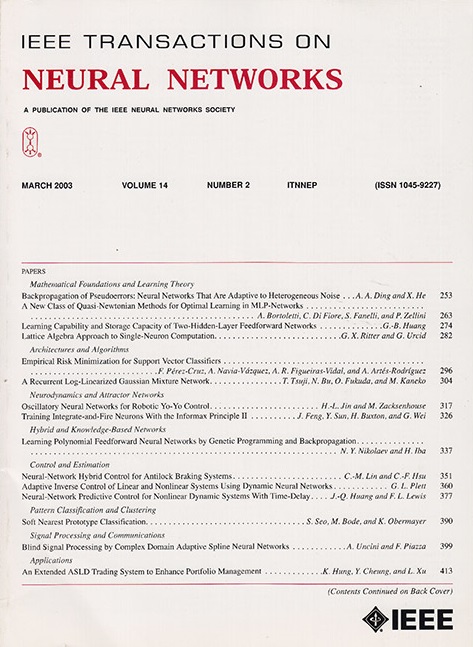Generalized Cross-Domain Industrial Process Monitoring via Adaptive Discriminative Transfer Dictionary Pair Learning With Attribute Embedding
IF 8.9
1区 计算机科学
Q1 COMPUTER SCIENCE, ARTIFICIAL INTELLIGENCE
IEEE transactions on neural networks and learning systems
Pub Date : 2025-03-07
DOI:10.1109/TNNLS.2025.3563618
引用次数: 0
Abstract
Real industrial process data from various domains often exhibit divergent distributions, may occupy distinct feature spaces, and are occasionally unlabeled, which limits the effectiveness of conventional process monitoring methods. To address these challenges, we propose an adaptive discriminative transfer dictionary pair learning (ADTDPL) method with attribute embedding for generalized cross-domain industrial process monitoring. Specifically, this method aligns the feature spaces of source and target domains by the aligned transfer reconstruction, enabling the transfer of knowledge through a common synthetical dictionary. Concurrently, semantic attributes relevant to process knowledge are seamlessly fused into data information via attribute embedding, enhancing the transferability and interpretability of dictionary pairs. Considering the relative significance of marginal and conditional distributions, an adaptive distribution consistency function is designed to better reduce the distributional discrepancies. And the discriminative structure regularization is developed to ensure the discrimination of the dictionary pairs and their corresponding coding coefficients. Furthermore, in the absence of target domain labels, a novel selective pseudo-labeling strategy is advanced to adaptively update pseudo-labels. The superior performance of our method for cross-domain process monitoring is verified on the Tennessee Eastman platform and in practical aluminum electrolysis processes (AEPs).基于属性嵌入的自适应判别迁移字典对学习的广义跨域工业过程监控
来自不同领域的真实工业过程数据通常表现出不同的分布,可能占据不同的特征空间,并且偶尔未标记,这限制了传统过程监测方法的有效性。为了解决这些问题,我们提出了一种基于属性嵌入的自适应判别迁移字典对学习(ADTDPL)方法,用于广义跨域工业过程监控。具体而言,该方法通过对齐的转移重构对源域和目标域的特征空间进行对齐,实现知识通过一个通用的综合字典进行转移。同时,通过属性嵌入将与过程知识相关的语义属性无缝融合到数据信息中,增强了字典对的可移植性和可解释性。考虑到边际分布和条件分布的相对重要性,设计了自适应分布一致性函数,以更好地减小分布差异。并提出了判别结构正则化方法,以保证字典对及其对应编码系数的判别性。此外,在缺乏目标领域标签的情况下,提出了一种新的选择性伪标签策略来自适应更新伪标签。在田纳西伊士曼平台和实际的铝电解过程(AEPs)中验证了我们的方法在跨域过程监测中的优越性能。
本文章由计算机程序翻译,如有差异,请以英文原文为准。
求助全文
约1分钟内获得全文
求助全文
来源期刊

IEEE transactions on neural networks and learning systems
COMPUTER SCIENCE, ARTIFICIAL INTELLIGENCE-COMPUTER SCIENCE, HARDWARE & ARCHITECTURE
CiteScore
23.80
自引率
9.60%
发文量
2102
审稿时长
3-8 weeks
期刊介绍:
The focus of IEEE Transactions on Neural Networks and Learning Systems is to present scholarly articles discussing the theory, design, and applications of neural networks as well as other learning systems. The journal primarily highlights technical and scientific research in this domain.
 求助内容:
求助内容: 应助结果提醒方式:
应助结果提醒方式:


